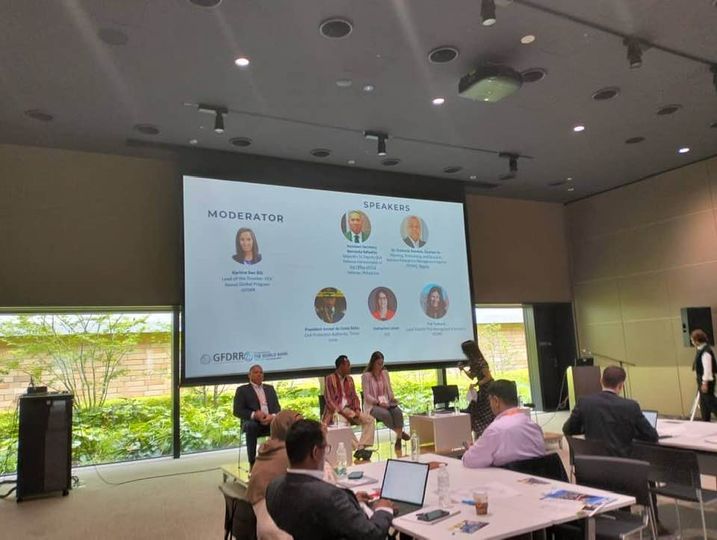Disaster-Fragility, Conflict and Violence (D-FCV) Focus Day (20 June, Thursday, Session)
Distinguished guests, Ladies and gentlemen, Dear Moderated, Dear Speaker and panelist colleagues
Economic, Catastrophes and even humankind itself. That is how complex and uncertain our century is.
- The National Civil Protection Emergency Response Plan (NCPEP) that will be the main reference for the government and partners in responding to disasters. This plan also outlines how we conduct risk governance that determines the scale and necessary actions to respond to disaster. The plan is complemented by a set of Annexes, one of which is a comprehensive Rapid Assessment template. These templates help us collect risk and impact data, which will support us in making decisions on determining activation levels and type of emergency declaration (Level 1, 2, and 3 or what we call global response). Upon data and information collection, as part of the NCPEP Annexes, we have templates for disseminating information to the public and the Government. Recently, we have had new partnerships with telecommunication providers to help us broadcast messages for early warning to communities.
- The development of the National Disaster Risk Management Strategy, along with our relevant government counterparts, so that DRR can be streamlined into sectors.
- Our vision towards the assimilation process with Association of Southeast Asia Nations (ASEAN), in this context is through the ASEAN Disaster Management Architecture that aims to be a global leader in disaster management.
- The main challenges faced are related with the establishment of a new institution such as CPA, as well as the institutional and legal framework for this institution to carry out its mandate.
- Innovative ideas to overcome challenges as new institution include overcoming insufficient data on vulnerability, with the development of its own multi-hazard assessment forms. And although the National Council has been established, CPA strives to involve and coordinate with other line ministries, and also CSO’s, private sector and religious institutions, whose inputs and contributions also feed into the decision-making process.
- In addition, the current challenge with administrative and financial autonomy, namely lack of its own contingency funding.
invest in the present to strengthen the future, Thank you very much.

